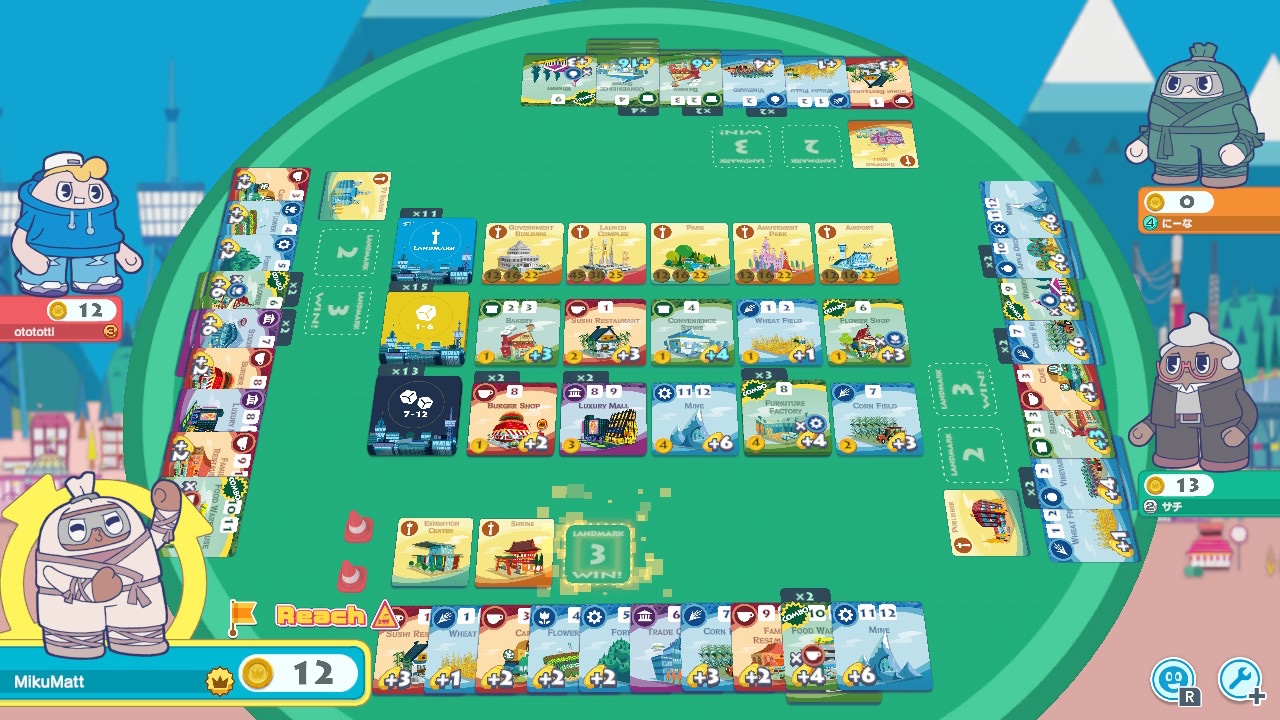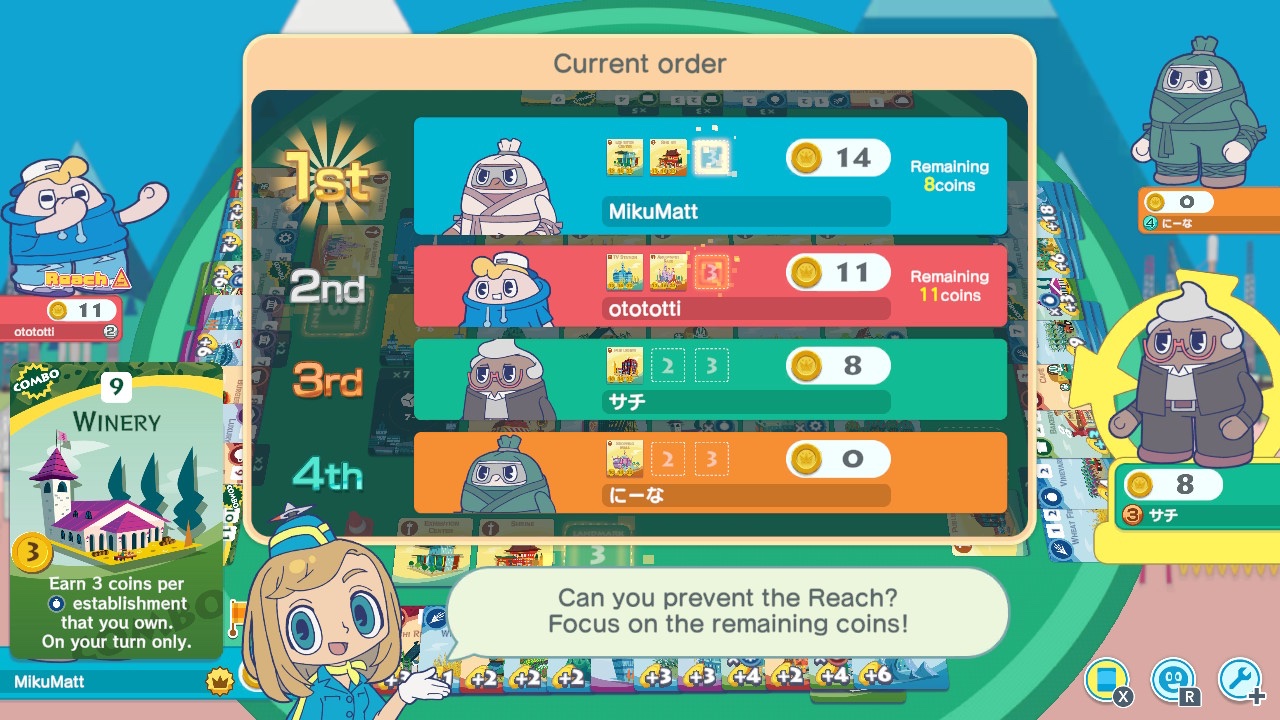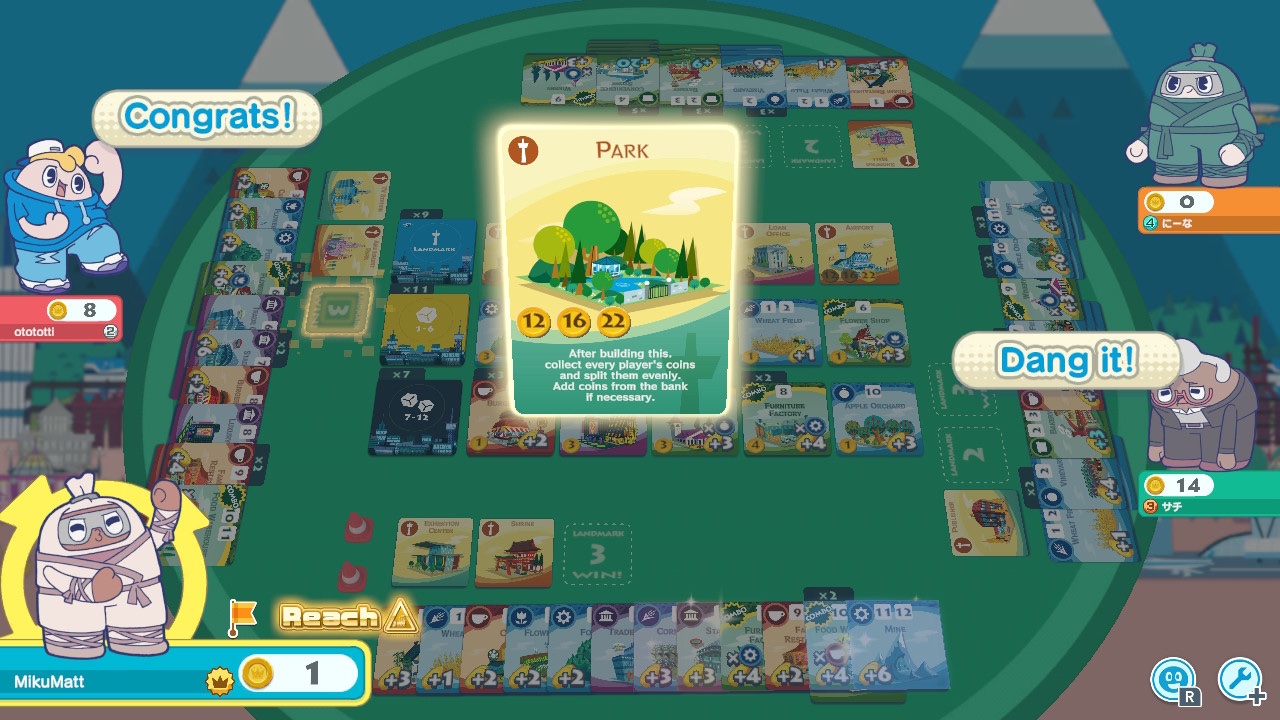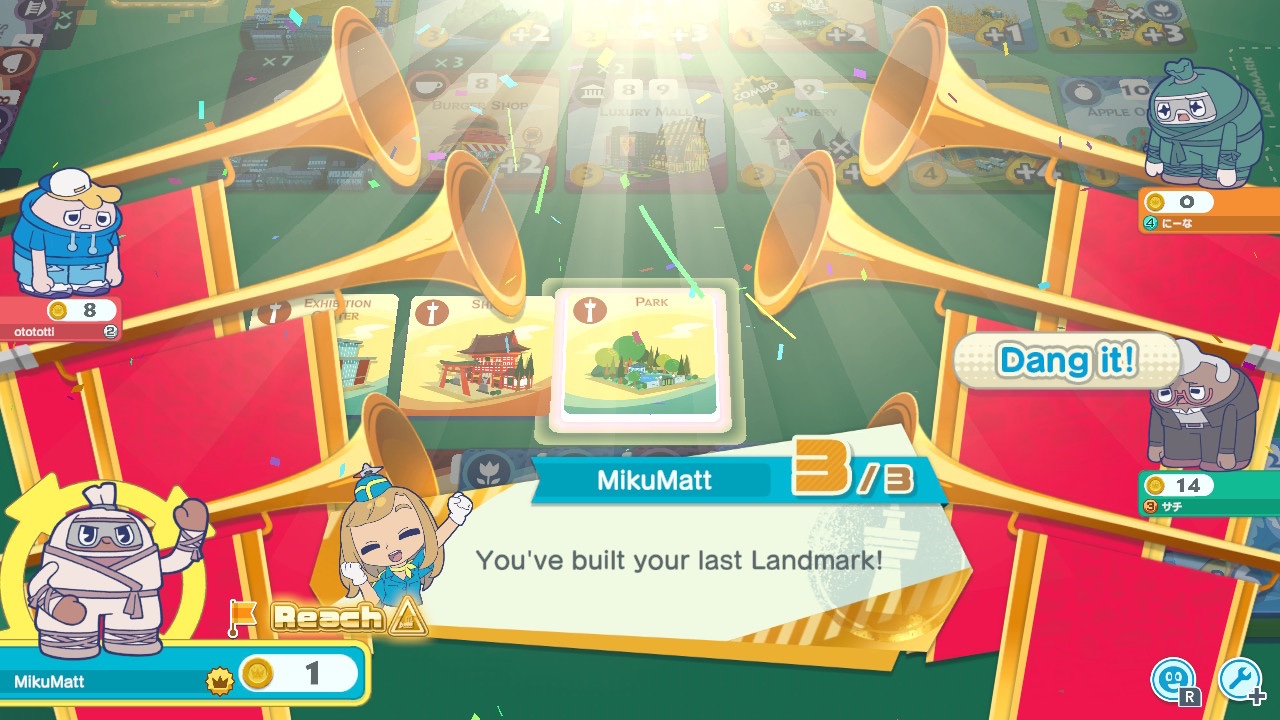Official Review
It's been a long time coming but we finally have a digital adaptation of Machi Koro, nearly 15 years after its original release, and it's excellent.
Machi Koro With Everyone actually offers two ways to play: The original Machi Koro, and Machi Koro 2, a "sequel" that was released back in 2021 with a slightly more textured set of rules that make it more appropriate for a competitive game. However, in both versions of the game the rules are incredibly simple:

- There are a couple of rows of cards in the middle of the table, each depicting a building or resource that you would commonly find in a city (orchards, cafes, bakeries, mines, supermarkets, etc). Each of these cards has a number on them, and each player starts with a small number of these cards in their own personal possession.
- A player rolls a die, and if the number on the die matches one of their buildings, they earn the equivalent money from that building. So, for example, the wheat field is numbered "1" and has a 1 coin value. If you roll a 1 on your turn, you earn one coin for each field you own.
- Alternatively, a few buildings are "attack" buildings and if your opponent has one of those, and you roll the number, then you give them some of your money. A café is numbered "3" and has a 1-coin value. If you roll a 3 on your turn, you give your opponent a coin for each café they own.
- After collecting and having any money stolen based on the die roll, you can then use the pool of money that you have left to buy another building. And so, over several turns people's cities start growing, the amount of money being collected grows in kind, and players start building special buildings that cost a small fortune. Whoever builds four (or three, in Machi Koro 2) first wins.

As with any great board game, success with Machi Koro doesn't come down to luck, but rather skill, and while the game can be learned in ten minutes (or less), actually doing well at it takes practice. Success with Machi Koro depends on a couple of things – a sense of timing (knowing when to focus on buying which building types), and an understanding of statistics (i.e. what numbers are likely to show up/have the greatest impact). In the second half of a game of Machi Koro players have the ability to use two dice rather than one, and it's important to understand that 6, 7, and 8 are statistically the most likely rolls and 2 and 12 are the least.
Thirdly, it's important to be able to adjust your strategy on the fly based on what your opponents are doing. If one of them is sticking to rolling a single die, then across the game the overall chances of 7-12 rolls having a major impact reduce, and 1-6 die rolls become higher impact. Alternatively, if an opponent is focusing on "attack" buildings, developing a way to reduce the risk of being drained by a bad roll is important.
Machi Koro is a very moreish experience because every individual game is over reasonably quickly – around half an hour or so – and turns move fast. The simple, elegant strategy coupled with the fact that no two games will play out the same way makes it easy for the "just one more game" impulse to kick in.

The developers have done a good job with the digital edition too, giving players weird but wonderful avatars, custom dice, and chat features to go with the bright colors of the card game itself. Machi Koro lacks the sheer beauty of the Wingspan app, or the graceful minimalism of Oink Games, but has a strong identity of its own that is very appealing.
The social features are impressive, too. Each time you play someone online, you get their "card", and then you can drop into a matrix grid that shows all the people you've played (and how many times you've played them), as well as leaderboards that are tied exclusively to your "network" of opponents. It's a fun incentive to play as many people as you can, and a helpful and fun way of tracking your strongest "rivalries." Machi Koro isn't a particularly cruel game and competition isn't overly heated, so almost everyone that you're going to bump into will be there for the joy of the experience.
Unfortunately, the developers did do one thing to the game that totally undermines the brilliance of the tabletop Machi Koro. With the digital game, when you make one stack of buildings particularly lucrative, meaning that you could get 15 or so coins from that dice roll, then the game will very likely decide that this is a "special" number, and manipulate the random number generator to give you a massively higher chance of rolling that number, anecdotally from a few dozen games it seems to lift the chance to something between 25%-50%. So you can stack up on buildings that require a 12 (which offers the biggest reward) and then reduce the inherent risk in stacking all your cards on a dice roll that should only have a 2.8% chance of success.

That single decision, which is non-optional and you can't turn it off, turns the exceptionally balanced and fine-tuned Machi Koro into something more akin to a party game. It's still a lot of fun, don't get me wrong. I'll be playing this with my brother for our weekend gaming catch-ups for quite some time, there are already lengthy periods where there is not a single online game of Machi Koro With Everyone available, and you can be sitting in a lobby that you've created for 10 minutes just to get a group to join randomly (in a game that is less than a week old). Given that, it's unfortunate that the party game flavor makes it less viable as a long-term single-player experience. I love it, but at the same time, Machi Koro With Everyone is an almost excellent adaptation of a brilliant board game that made one very big, unforgivable mistake.

